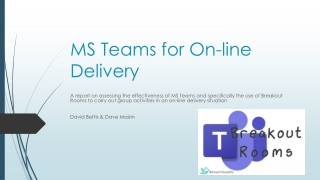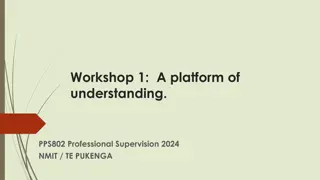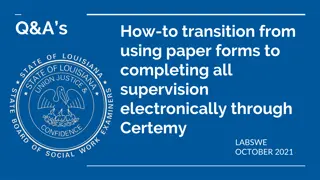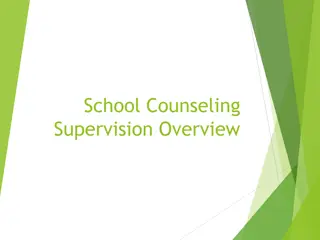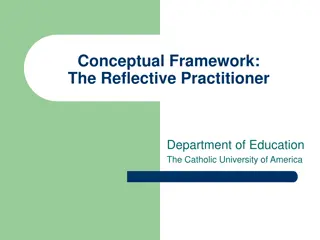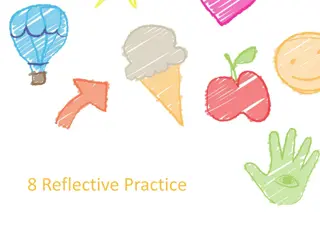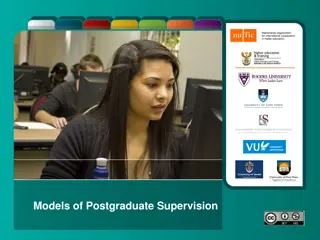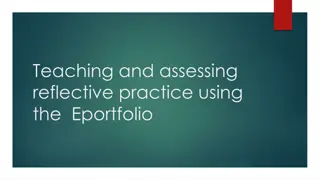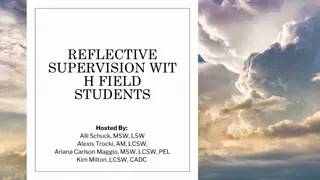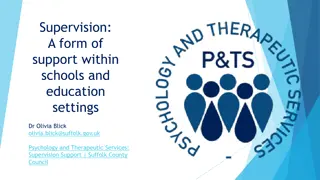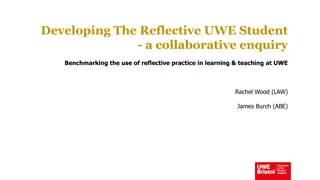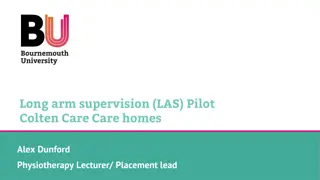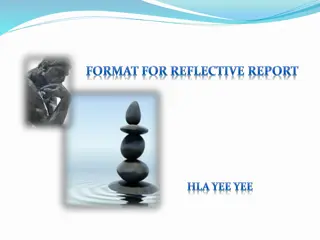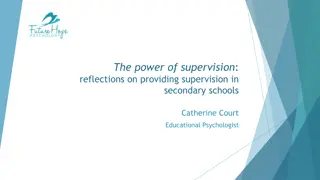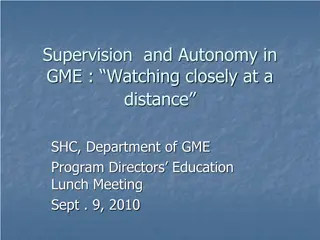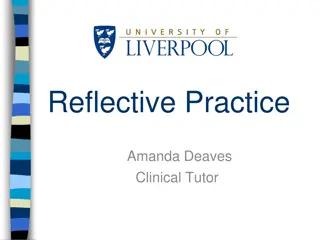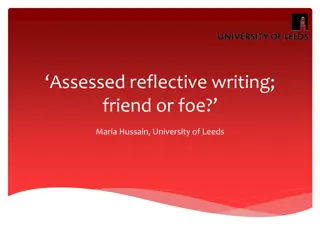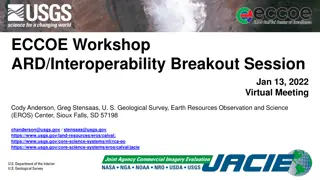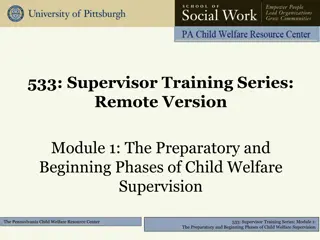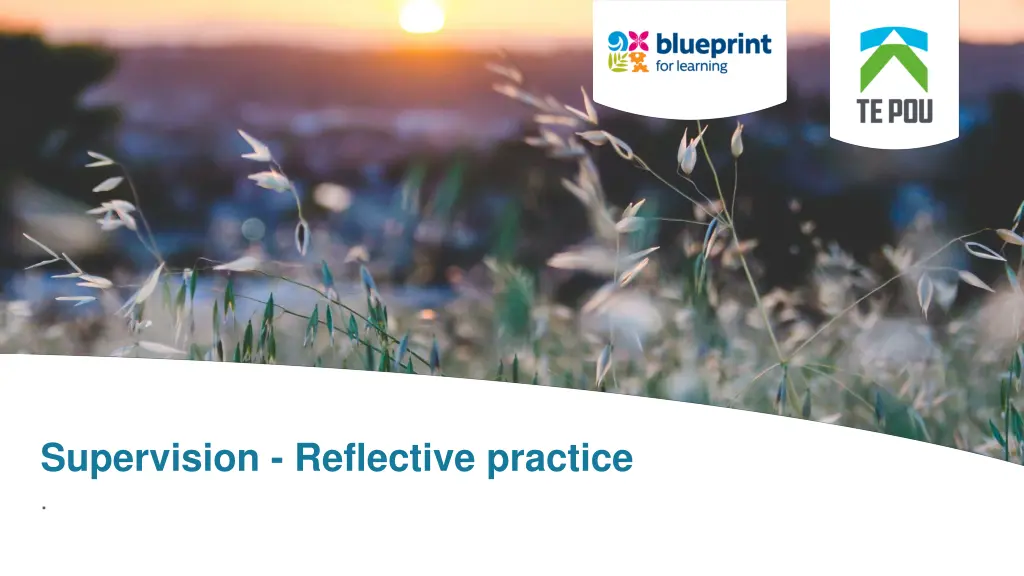
Cultural Safety in Reflective Practice and Supervision
Explore the concepts of cultural safety within reflective practice and supervision, focusing on acknowledging cultural identities, addressing power imbalances, and supporting safe and effective practices for individuals and their communities. Learn about the importance of reflective practice in professional roles, ethical decision-making, and protecting wellbeing in roles prone to burnout and compassion fatigue.
Download Presentation

Please find below an Image/Link to download the presentation.
The content on the website is provided AS IS for your information and personal use only. It may not be sold, licensed, or shared on other websites without obtaining consent from the author. If you encounter any issues during the download, it is possible that the publisher has removed the file from their server.
You are allowed to download the files provided on this website for personal or commercial use, subject to the condition that they are used lawfully. All files are the property of their respective owners.
The content on the website is provided AS IS for your information and personal use only. It may not be sold, licensed, or shared on other websites without obtaining consent from the author.
E N D
Presentation Transcript
Reflective practice - supervision New Zealand Coaching & Mentoring Centre Execu tive Coaching, Training & Consulting Aly McNicoll Tupuranga: a place to grow framework | Te Pou Refresher Reflective practice and supervision are interchangeable Models, continuum of experience
Cultural safety in Supervision Cultural supervision Cultural safety within reflective practice Cultural safety is an approach that acknowledges, respects, and values the cultural identities and experiences of (kaimahi and) t ngata whai ora while addressing power imbalances in relationships (Nursing Council of New Zealand, 2025)
What is Reflective practice A core and essential part of people who work with people Formal relationship that: Helps us learn and grow in our roles It enables development of cultural responsiveness Supports safe and effective practice for t ngata whai ora and their wh nau Ethical decision making Attends to the emotional impact and wellbeing of kaimahi refers to an ongoing process of facilitated, in-depth conversations on your professional practice. (Tupuranga, 2025)
Protecting your wellbeing In our mahi, we are more susceptible to : Burnout physical and emotional exhaustion Compassion fatigue Vicarious trauma Look for warning signs and take action if they appear Actively do things to protect your wellbeing Retaining the balance in Te Whare Tapa Wh Sweet spot
Supervisors Build understanding of what Supervision is Ensure protected time Review regularly Pre-supervision prep - what are the themes - what s coming up for you
Supervisee Come prepared areas of concern from clinical and non- clinical practice Identify aspects of work which have a safety or ethical implications Follow through on mutually agreed outcomes Discuss with supervisor any event or circumstance that may be affecting provision of support Explore if there is an attitude shift towards a person/group To provide feedback for what is or is not helpful
Access to e-learning Hosted on P koro, a separate learning management platform Full list of e-learning modules on Te Pou website. www.pukorolearning.co.nz www.tepou.co.nz/e-learning
Access to e-learning - Pkoro A computer screen with a login page AI-generated content may be incorrect. Go to www.pukorolearning.co.nz
Contracting Why this is important Watch Fiona s video What do you include ? What are Fiona s key points ? What can we take away from Fiona s practice ? What other things can we add to the contracting process that Fiona did not mention?
Mana enhancing practice Whakawh naungatanga Significance of karakia Whakatauk and whakatau k Te Naihi Wilson, Kaum tua
What to bring Situations that could have been approached differently Things that went well An event or situation you keep thinking about Relational issues A situation in process Progress on our support for t ngata whai ora, projects Decisions, ethical dilemmas or complex aspects to your role Career or role development issues A theme or issue apparent in your work Our personal wellbeing , and how this interacts with our mahi ( If nothing is brought ? Give two min to think of something based on this list)
7 simple skills Purposeful start fast: What s on your mind? What do you want out of the k rero? How would you like things to be different? - finish strong: What have you learned? Listen Reflect back what you hear, reflect feelings, meaning, themes, possibilities
7 simple skills Notice - what s happening for you as you listen, for them, between the two of you, their body language. Positive feedback say what impresses you, validate, point out their strengths Ask 1 or 2 good questions Ask q s that arise in the moment out of what you notice , rather than thinking about solutions or answers Alternative perspective I notice that it seems to me that
WHOA to GO What s happening now ? How would you like it to be different? Options exploration or alternatives? Action commitment to action
WHOA to GO In what way ? How so? What make you say/think that? How specifically? What do you mean by..? Who exactly ? Can you give me an example?
WHOA to GO We supervise the person not the practice So what is the real challenge for you in that ? So how was that for you ? So what s the main issue for you ? So how would you rather have things turned out ? What of this would you like to focus on ? What professional issues did this highlight ?
Supervision in Action Supervisee/kaimahi recent success / something going well. What happened ? What your role was, why you think it turned out well. The group listens, then each give f/back on either: what you think contributed to their sense of success OR their approach/actions/attitudes to this positive story Supervisee/kaimahi listen in silence. Then comment back on what you are taking away, any insights or new learning for you.
Connecting to courage in supervision (Weld 2021) Is there an experience where you felt you coped with something frightening or uncertain ? In this experience, did you find yourself experiencing uncertainty, vulnerability or fear ? Can you describe your top three worries around this ? It sounds like you made a conscious decision to act despite these feelings, can you tell me what motivated you ? How do these connect to your personal beliefs and values ? If someone else had been watching, what attributes or behaviours would they have seen / see you enacting?

